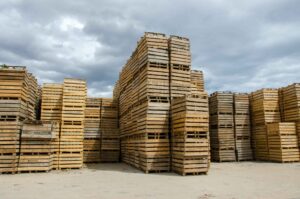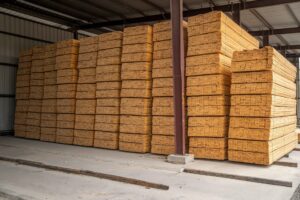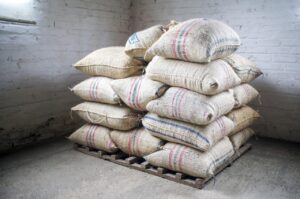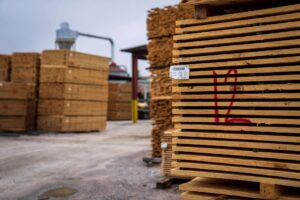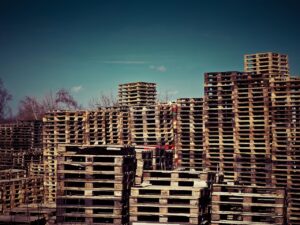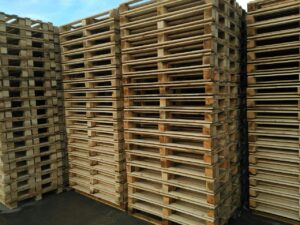In the ever-evolving landscape of agriculture, the quest for sustainable and eco-friendly practices has become imperative. One promising ally in this endeavor is bamboo—a versatile, fast-growing plant with a multitude of benefits for both the environment and farmers. This blog explores the diverse ways in which bamboo can be seamlessly integrated into sustainable farming practices, ushering in a new era of agricultural innovation.
1. Erosion Control:
- Root Structure: Bamboo’s extensive and fibrous root system helps bind soil particles together, preventing erosion.
- Slope Stability: Planting bamboo on slopes helps stabilize the soil, reducing the risk of landslides and surface runoff.
- Water Absorption: Bamboo roots absorb excess water during heavy rainfall, reducing surface runoff and soil erosion.
- Year-Round Coverage: Bamboo provides consistent ground coverage throughout the year, offering continuous erosion control benefits.
2. Water Conservation:
- Low Water Requirement: Bamboo is known for its ability to thrive with minimal irrigation, making it well-suited for water-stressed environments.
- Drought Resistance: Some bamboo species exhibit resilience to drought conditions, further contributing to water conservation efforts.
- Reduced Evaporation: Bamboo canopy provides shade, reducing evaporation from the soil surface and helping to conserve soil moisture.
- Companion Planting: Planting bamboo alongside water-sensitive crops can create a microclimate that reduces water demand for those crops.
3. Bamboo Hedgerows:
- Windbreak Effect: Bamboo acts as an effective windbreak, reducing the impact of strong winds on crops.
- Microclimate Regulation: Bamboo hedgerows create a microclimate that helps regulate temperature and humidity, benefiting nearby crops.
- Wildlife Habitat: The dense structure of bamboo hedgerows provides habitat and shelter for beneficial insects and birds.
- Aesthetic Value: In addition to practical benefits, bamboo hedgerows can enhance the visual appeal of farmland.

4. Nutrient Cycling:
- Nutrient Accumulation: Bamboo has the ability to accumulate and concentrate nutrients from the soil, promoting nutrient cycling.
- Decomposition Rate: Bamboo leaves decompose quickly, releasing nutrients back into the soil for other plants.
- Soil Enrichment: Regular planting and decomposition of bamboo contribute to long-term soil fertility.
- Complementary Planting: Bamboo can be strategically planted alongside nutrient-demanding crops to enhance overall soil fertility.
5. Natural Pesticide:
- Insect-Repellent Properties: Some bamboo species release natural compounds that repel certain pests, acting as a built-in pest management system.
- Companion Planting Benefits: Planting bamboo around vulnerable crops can deter pests, reducing the need for chemical pesticides.
- Biodiversity Support: Natural pest resistance in bamboo promotes a healthier agroecosystem by preserving beneficial insects.
- Disease Prevention: Bamboo’s antimicrobial properties can contribute to preventing soil-borne diseases in nearby crops.
6. Agroforestry:
- Biodiversity Boost: Integrating bamboo into agroforestry systems enhances overall biodiversity by providing diverse habitats.
- Microclimate Modification: The multi-layered structure of agroforestry systems, including bamboo, helps regulate temperature and humidity.
- Soil Conservation: Root systems of bamboo and companion plants in agroforestry contribute to soil stability and prevent erosion.
- Economic Diversification: Agroforestry incorporating bamboo provides multiple income streams, including bamboo products and other crops.
7. Bamboo Mulch:
- Moisture Retention: Bamboo mulch helps the soil retain moisture, reducing the need for frequent irrigation.
- Weed Suppression: The dense nature of bamboo mulch inhibits weed growth, minimizing competition for water and nutrients.
- Temperature Regulation: Acts as insulation, preventing extreme temperature fluctuations in the soil.
- Organic Matter Addition: Bamboo mulch decomposes over time, adding organic matter to the soil and improving its structure.
8. Livestock Forage:
- High Nutritional Value: Some bamboo varieties offer nutritious forage suitable for livestock.
- Sustainable Grazing: Bamboo regenerates quickly after grazing, providing a sustainable forage resource.
- Health Benefits: Certain compounds in bamboo may have health benefits for livestock.
- Reduced Pressure on Grasslands: Integrating bamboo into livestock diets reduces the pressure on traditional grassland resources.
9. Bioenergy Production:
- Rapid Growth: Bamboo’s fast growth rate makes it a renewable and efficient source of biomass for bioenergy production.
- Low Carbon Footprint: Burning bamboo for energy releases less carbon dioxide compared to fossil fuels.
- Community-Based Energy: Small-scale bioenergy production from bamboo can be community-managed, promoting energy independence.
- Reduced Dependence on Wood: Bamboo bioenergy reduces the demand for traditional wood resources, preserving forests.

10. Bamboo Construction Materials:
- Renewable Harvesting: Bamboo can be harvested sustainably without causing long-term environmental damage.
- Strength and Durability: Bamboo’s tensile strength makes it an excellent construction material, suitable for various applications.
- Fast Regeneration: Bamboo regrows quickly after harvesting, providing a readily available construction resource.
- Versatility: Bamboo can be used for diverse construction needs, including fencing, trellises, and even as a building material for housing.
11. Carbon Sequestration:
- High Carbon Absorption: Bamboo’s efficient photosynthesis process allows for the rapid absorption of carbon dioxide.
- Long-Term Storage: Carbon sequestered in bamboo remains stored for the life of the bamboo product.
- Carbon Offsetting: Planting bamboo contributes to offsetting carbon emissions from other sources.
- Climate Change Mitigation: Bamboo’s role in carbon sequestration helps mitigate the effects of climate change.
12. Community Development:
- Income Generation: Bamboo cultivation provides a source of income for local communities, supporting livelihoods.
- Skill Development: Bamboo farming and processing offer opportunities for skill development within local communities.
- Market Access: Bamboo products can open up new markets for local artisans and entrepreneurs.
- Cultural Preservation: Bamboo-based activities often align with traditional practices, preserving cultural heritage.
When implementing bamboo in sustainable farming, these detailed points provide a comprehensive understanding of the various ecological, economic, and social benefits associated with bamboo cultivation and utilization.

